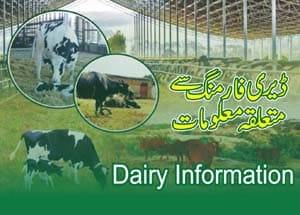
International Vulture Awareness Day & its History | Vulture Characteristics | Vulture Bird Importance in Ecosystem
International Vulture Awareness Day (IVAD) (گدھ) is celebrated on the first Saturday of September each Year. This day aims to raise awareness about the importance of vulture bird in ecosystems and the threats it faces globally. These remarkable creatures with unique vulture characteristics play a critical role in nature as nature’s cleaners, ecosystem guardians, flying giants, and devoted parents. As well as, vultures help to prevent the spread of diseases that could devastate wildlife, livestock, and even people. In addition, their ability to rapidly consume livestock carcasses can significantly reduce greenhouse gas emissions.
Despite this crucial function, the vulture bird is tragically misunderstood and underappreciated on our planet. That is why International Vulture Awareness Day (IVAD) plays an important role in Vulture Conservation. Many vulture bird species are endangered due to factors such as poisoning, habitat loss, and poaching.
Vultures in Pakistan and reasons being threatened
History of International Vulture Awareness Day
International Vulture Awareness Day began in 2006. This day was initiated by the collaboration of the Birds of Prey Programme in South Africa and the Hawk Conservancy Trust in the UK. But, now this day is supported by the Endangered Wildlife Trust, Hawk Conservancy Trust, and the Vulture Conservation Foundation, on behalf of the Vulture Specialist Group. However, this movement has become a hope for vulture conservation.
Vulture Characteristics
Vultures (گدھ) belong to the order Falconiformes. However, they are divided into two families. “Old World” vultures of Eurasia and Africa belong to the family Accipitridae. On the other hand, “New World” vultures of the Americas belong to the family Cathartidae.
Distinctive Vulture Characteristics include bald unfeathered head. This bare skin keeps the head clean during feeding. As well as it also plays an important role in thermoregulation. They have broad, powerful wings that allow them to soar for long periods while searching for food. They also urinate on themselves as a means of cooling their bodies in the heat.
Vulture in Lahore after decades
When many vultures move in a slowly ascending spiral around the thermal in the air called a kettle. A group of these birds resting on the ground around the food or carcass is called Vulture Committee. Similarly, a group of birds resting after feeding or waiting for their turn to eat near the carcass or might be perched in nearby trees called Wake.
They have strong hooked and sharp beak adapted to tear the tough skin and muscles of dead animals. Most of these birds have a large pouch in the throat (crop) and can go for long periods without food. They have excellent eyesight to locate food from great distances. But, New World vultures, like the turkey vulture have an acute sense of smell to detect gases from decaying animals.
Old World vultures have relatively strong feet, but New World Vultures have weak flat feet. Overall, both families have weak feet that are poorly adapted for grasping.
Increasing Vulture Population in Pakistan despite the threats







6 Comments
You can shelter yourself and your dearest by way of being alert when buying prescription online. Some pharmaceutics websites function legally and offer convenience, reclusion, sell for savings and safeguards for purchasing medicines. buy in TerbinaPharmacy https://terbinafines.com/product/clomid.html clomid
This is the compassionate of writing I in fact appreciate. order terbinafine
Thanks for putting this up. It’s evidently done.
Với giao diện mượt mà và ưu đãi hấp dẫn, MM88 là lựa chọn lý tưởng cho các tín đồ giải trí trực tuyến.
Khám phá thế giới giải trí trực tuyến đỉnh cao tại MM88, nơi mang đến những trải nghiệm cá cược thể thao và casino sống động.
kuwin sở hữu kho game đa dạng từ slot đến trò chơi bài đổi thưởng, mang đến cho bạn những giây phút giải trí tuyệt vời.